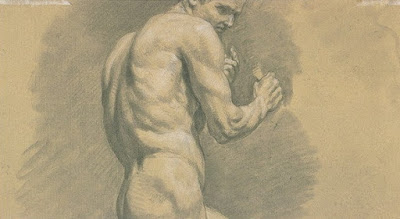 |
| Nicolas-Bernard Lépicié Académie before 1784 drawing Musée du Louvre |
 |
| Nicolas-Bernard Lépicié Académie before 1784 drawing Musée du Louvre |
 |
| Nicolas-Bernard Lépicié Académie before 1784 drawing Musée du Louvre |
 |
| Nicolas-Bernard Lépicié Académie before 1784 drawing Musée du Louvre |
 |
| Nicolas-Bernard Lépicié Académie before 1784 drawing Musée du Louvre |
 |
| Nicolas-Bernard Lépicié Académie before 1784 drawing Musée du Louvre |
 |
| Nicolas-Bernard Lépicié Académie before 1784 drawing Musée du Louvre |
 |
| Nicolas-Bernard Lépicié Figure Study ca. 1769 drawing Musée du Louvre |
 |
| Nicolas-Bernard Lépicié Figure Study ca. 1771 drawing Musée du Louvre |
 |
| Nicolas-Bernard Lépicié Half-Length Figure Study before 1784 drawing Musée du Louvre |
 |
| Nicolas-Bernard Lépicié Half-Length Figure Study ca. 1769 drawing Musée du Louvre |
from Barcarolle
Empedocles on Etna is a poem
By the Victorian poet Matthew Arnold.
Readily I'll concede that poetry is a criticism of life (his phrase)
About as much as red-hot iron
Is a criticism of fire,
—
But we're in Sicily,
The gods are still with us.
The sun has warmed the rocks
Heaven and earth.
But we're in Sicily,
The gods are still with us.
The sun has warmed the rocks
On which we're lounging, eating goat cheese, drinking new wine.
You're hardly wearing any clothes.
—
Nobody's wearing clothes!
Neither is anyone
Worried about sunlight.
Neither is anyone
Worried about sunlight.
This is before Jesus, before Socrates,
Before the double onslaught of guilt and rationality
—
Doomed us (I'm paraphrasing Nietzsche) to believe
In the rectification of the world
Through knowledge—to live
Within the limited circle of soluble problems,
Where we may cheerfully say to life
—
I want you! You're worth knowing!
Empedocles is having a bad day.
Once, he was a god;
Smart, good-looking, too.
You understand how anyone might feel that way
—
Just being where we are, tasting things, just breathing the air.
Above us, Etna's cone
Emits its languorous white plume.
Miracles? Mistrust them, says Empedocles.
Mind is a spell that governs
—
Heaven and earth.
Is it so small a thing
To have enjoyed the sun,
To have lived lightly in the spring,
To have loved, to have thought, to have done?
—
Obvious as the answer to this question may be, convincing, too,
Empedocles climbs beyond the ashen trees,
The potholes red as an open wound,
And steps into a cloud.
A poem of passive suffering, said Arnold,
—
Could have no place in his collected poems.
No place! His greatest poem! Whose suffering
Isn't passive? What else
Could suffering be?
One night in Venice
—
I couldn't sleep; I heard the bells
Of San Giacomo ring four times, then five.
I heard the mutter of a boat, two voices, a woman's and a man's,
Then somehow rising
Between them, as from the water itself,
—
The Chopin barcarolle.
Where were they going?
Who could they have been?
Why were they playing Chopin
In their little boat . . . ?
– James Longenbach (2021)



